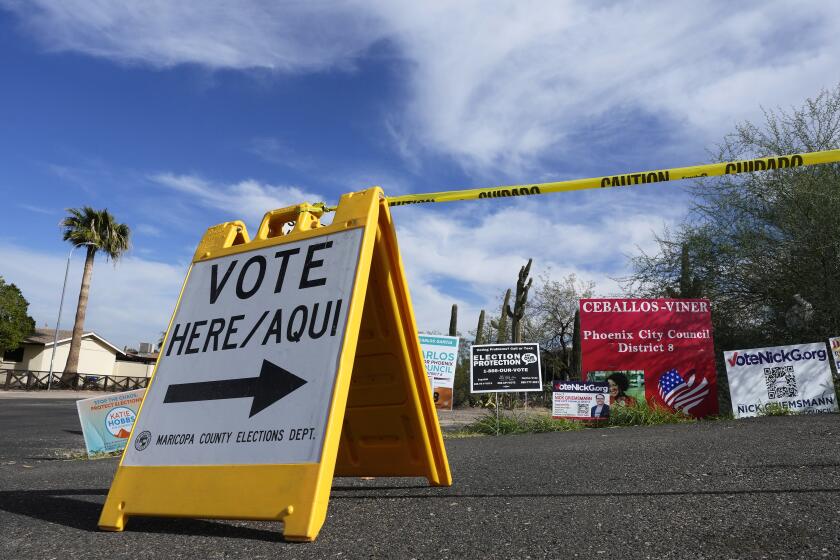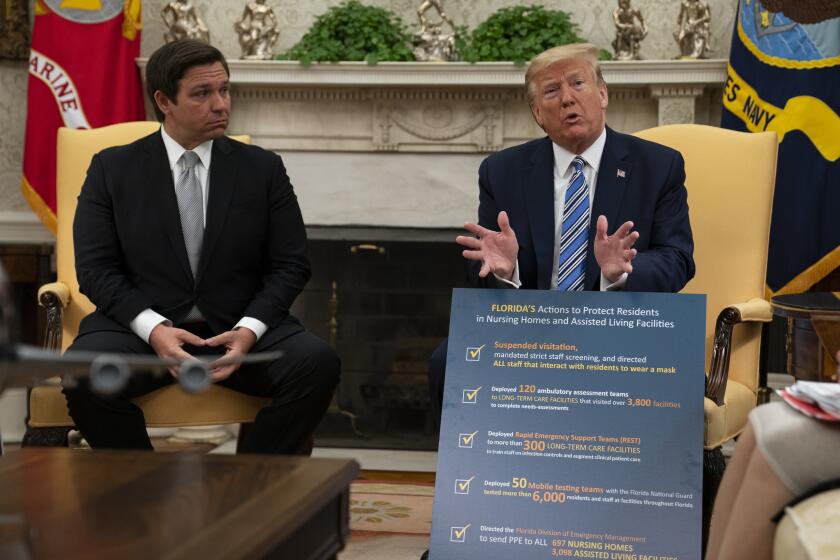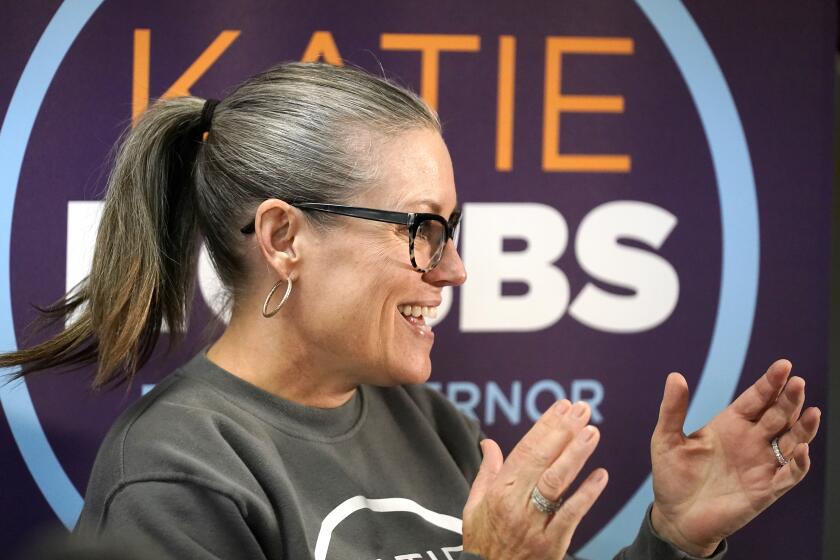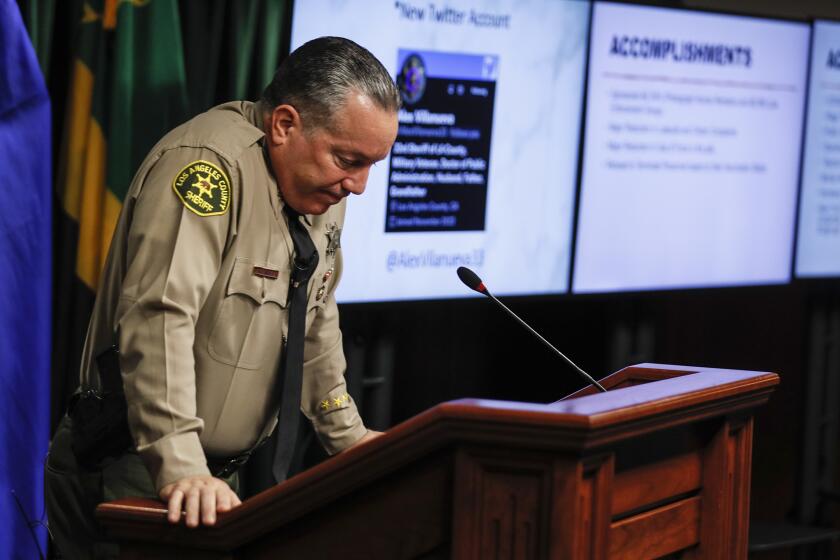Republican Kari Lake refuses to concede in Arizona governor’s race she lost
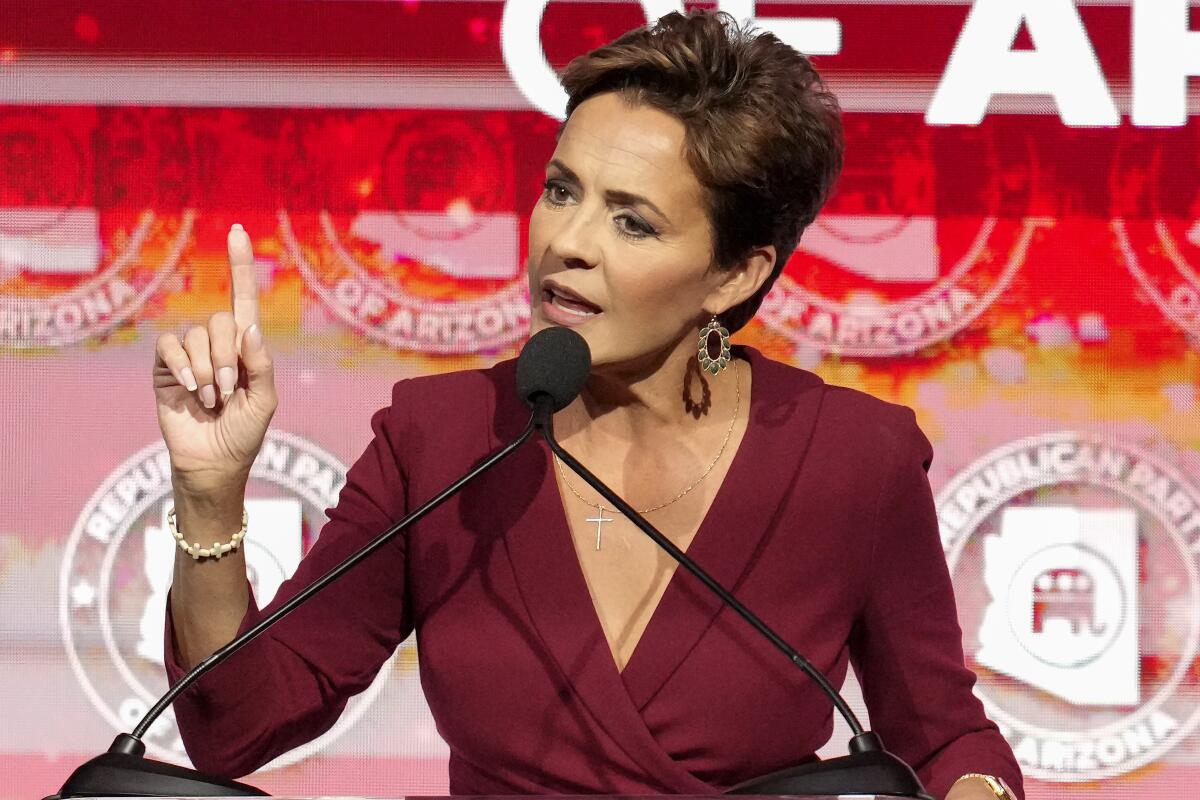
- Share via
PHOENIX — Refusing to concede, Kari Lake, the defeated Republican candidate for Arizona governor, said Thursday she is assembling lawyers and collecting evidence of voters having trouble casting ballots on election day as she considers her next move.
Lake, who was endorsed by former President Trump, traveled to his Mar-a-Lago club in Florida on Thursday, her campaign spokesman told the Associated Press. The Washington Post first reported that she attended a luncheon held by the America First Policy Institute, an advocacy group created by former Trump advisors.
In a 2½-minute video, Lake made no mention of acknowledging defeat in her most extensive public comments since losing the election. Before the election, she had refused to say that she would concede if she lost the race to Democrat Katie Hobbs.
“Rest assured I have assembled the best and brightest legal team, and we are exploring every avenue to correct the many wrongs that have been done this past week,” Lake said. “I’m doing everything in my power to right these wrongs.”
She pointed to long lines at some polling places that were exacerbated by problems with ballot printers at about a third of the vote centers in Maricopa County, the largest county in the state. She said the problems disenfranchised voters who couldn’t wait at the polls.
“What happened to Arizonans on election day is unforgivable,” she said.
Arizona voters, the vast majority of whom vote by mail, have rejected a measure that would require them to add more information to mail-in ballots.
County election officials said that all ballots were counted and that voters could go to any polling place in the county, many of which had a short line or none at all, with wait times posted online.
Election officials traced the problems to a printer setting that sometimes led to ballots printing too lightly for the on-site tabulators to read. They said they used the same settings in the August primary and for preelection testing and there were no widespread issues.
About 17,000 ballots were not scanned at precinct-based vote counters and were instead placed in a collection box to be counted by more sophisticated machines at the county’s election headquarters. The collection box has come to be known as “box three.”
Bill Gates, the Republican chair of the Maricopa County Board of Supervisors, has blamed state GOP Chair Kelli Ward and other prominent Republicans for causing delays and long lines because they told their supporters not to use box three.
“This team, we have accepted our responsibility in this,” Gates said Monday. “But I’m not willing to accept responsibility for issues that were caused by others. And it is clear to me that those lines were longer because leaders in one political party were spreading misinformation.”
The strife between Donald Trump and Florida’s newly reelected governor comes amid the GOP’s less-than-stellar performance in the midterm elections.
Republicans asked a judge to extend the hours at polling places because of the issues. The judge declined, saying they presented no evidence that anyone was disenfranchised.
Democrats voted overwhelmingly via ballots received in the mail. In-person election day votes heavily favored the GOP because Lake and other prominent Republicans had claimed it was more secure, an assertion that election experts reject.
Lake has said little since the Associated Press and other news organizations called the race for Hobbs on Monday. Late Wednesday, she posted video with clips from the campaign trail set to the lyrics, “I won’t back down.”
Her video Thursday said Hobbs, who is currently secretary of state, should have recused herself from any role in the election. The secretary of state creates election procedures and certifies equipment, but her office does not count ballots, a task that is done by the state’s 15 counties.
More to Read
Get the L.A. Times Politics newsletter
Deeply reported insights into legislation, politics and policy from Sacramento, Washington and beyond. In your inbox twice per week.
You may occasionally receive promotional content from the Los Angeles Times.
